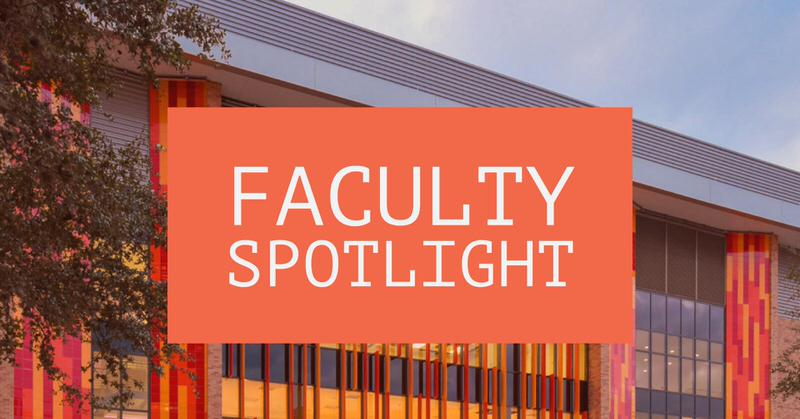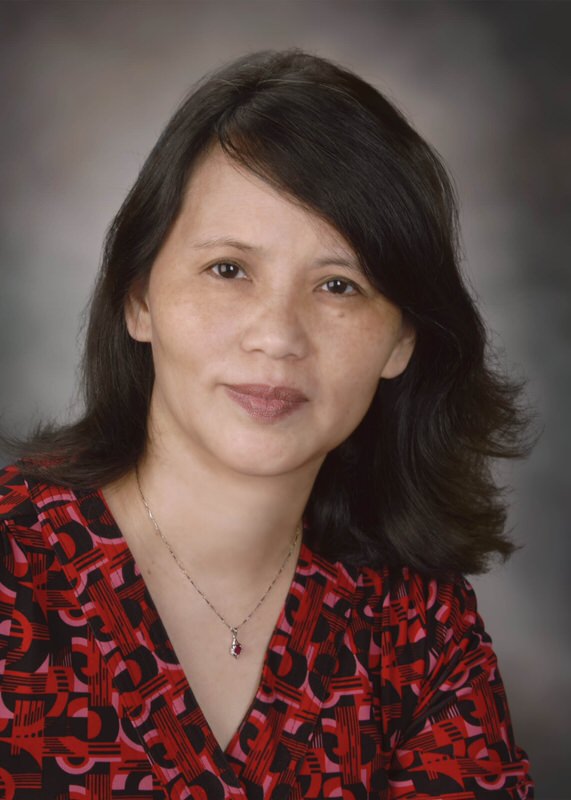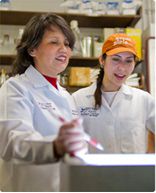Faculty Profile: 8 Questions With Dr. Lily Dong

Dr. Lily Dong is a faculty member in the Department of Cell Systems & Anatomy. Dr. Dong participates in training graduate students and teaching several graduate level courses including Fundamentals of Biomedical Science (INTD5000), Graduate Colloquium (CSBL5089), and Advanced Cell and Molecular Biology (INTD5007). She received the Graduate Teaching Award (Cell Systems & Anatomy Department) in 2008 and Presidential Teaching Excellent Award (UTHSCSA) in 2013. She is a Master Teacher named by the University of Texas Health Science Center and a Distinguished Teaching Professor awarded by the University of Texas Board of Regents.
 1) Please tell me about yourself.
1) Please tell me about yourself.
I’m a professor in the Department of Cell Systems and Anatomy. I got my Bachelor of Science degree in biochemistry at Wuhan University and my doctoral degree in biochemistry from Iowa State University. After I received my Ph.D., I went to Stanford for postdoc. Then we moved to San Antonio because rates of diabetes and obesity are higher here. This was the major reason we moved to San Antonio versus other states.
2) Tell me about your research interests and why you are passionate about this topic?
My lab researches Adiponectin, a hormone secreted from adipose tissue. The serum concentration of adiponectin is significantly reduced in type 2 diabetic and obese patients. A number of studies have shown that adiponectin is an insulin sensitizer by enhancing insulin sensitivity, suggesting that the molecules in adiponectin signal pathways could be targets of therapeutic drug development for the treatment of type 2 diabetes and obesity.
However, the molecular mechanism governing adiponectin action is largely unknown. Our research interest is mainly focused on: 1) the elucidation of the molecular pathway(s) mediating adiponectin signaling in cells and in vivo; and 2) the investigation of the molecular mechanism of the cross-talk between insulin signaling pathway and adiponectin signaling pathway.
3) What do you want the public to know about your research? Why is your topic important?
Back 20 years ago, we believed that adipose tissue is a storage organ but in the past ten years, we believe that the tissue also functions as the endocrine organ. We believe that Adiponectin is beneficial for the body. We are trying to understand how this hormone works and what is the potential for using this as a therapeutic drug to prevent and treat Type II diabetes.
4) When did you start becoming interested in science?
When I was 7 or 8, I figured out I wanted to be a scientist or a teacher. I felt like I liked organized things and reading. Compared to the other kids, I wasn’t good for social work. I liked having time to be quiet. I’m very lucky to find this position.
5) Who has influenced you the most in life?
I would say my Ph.D. and postdoc mentor. They really guided me as a scientist and also my husband Dr. Feng Liu, who is a professor in the pharmacology department here. He has always helped me. My parents were also a huge influence for me because they were also biomedical scientists. They always said you must try your best. This attitude has benefited my whole life.
6) What is your favorite part of your job?
 I think it’s interacting with students. I love teaching and learning from students. It’s a two way process. I learn from students as a professor and a mentor. They are young and motivated. They also tend to catch the information faster and they always ask me questions that I wouldn’t have thought about in that way. We need that vision for science and that fresh air. My mother always told me that in science, you must work as a team. That’s the joy and the experience, it has made my life so colorful.
I think it’s interacting with students. I love teaching and learning from students. It’s a two way process. I learn from students as a professor and a mentor. They are young and motivated. They also tend to catch the information faster and they always ask me questions that I wouldn’t have thought about in that way. We need that vision for science and that fresh air. My mother always told me that in science, you must work as a team. That’s the joy and the experience, it has made my life so colorful.
7) What is the most challenging part of your job?
We are always looking for financial support and it’s a challenge for every faculty and I’m not the exception.
8) How do you like to spend your free time?
In my free time, I like reading and I also like singing in a group and for local society. I spend two hours a week practicing.
This article is part of the “Faculty Spotlight” series which showcases faculty at The University of Texas Health Science Center San Antonio.
